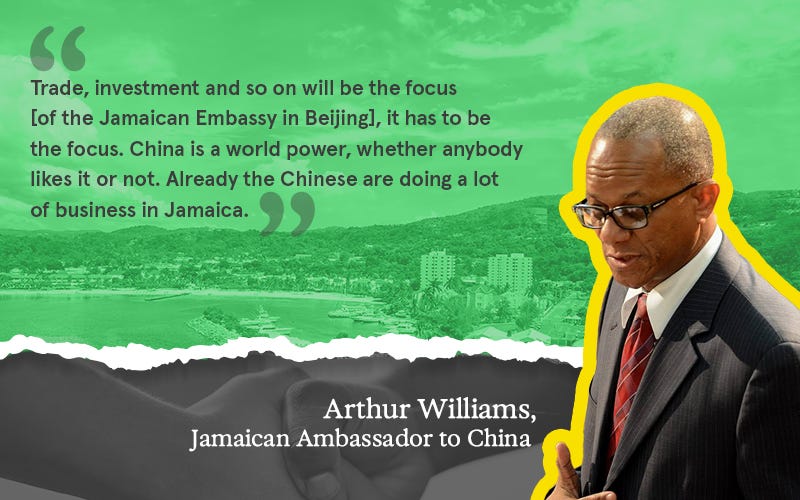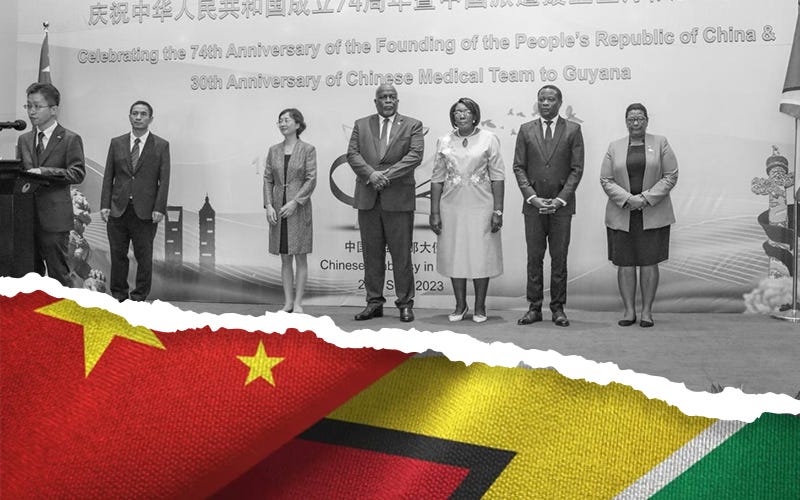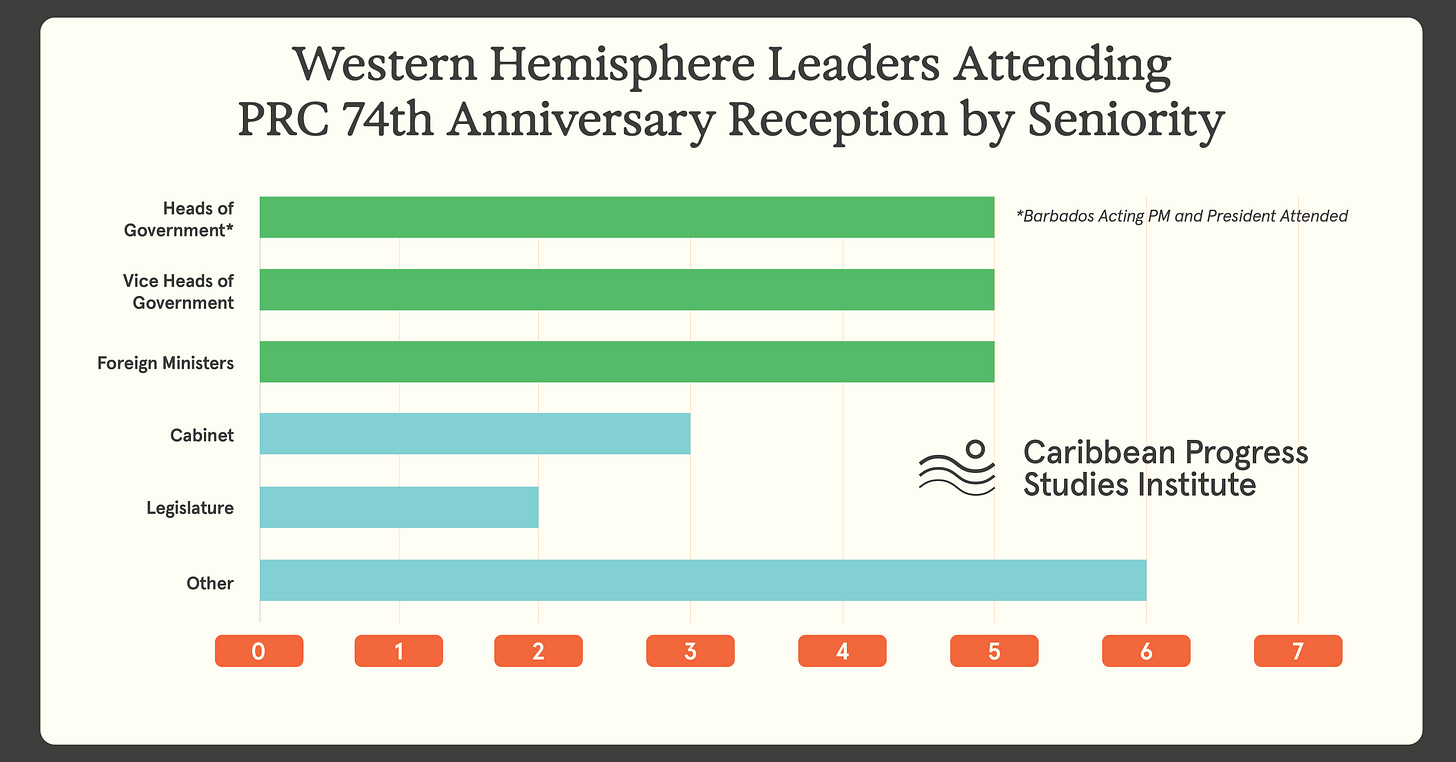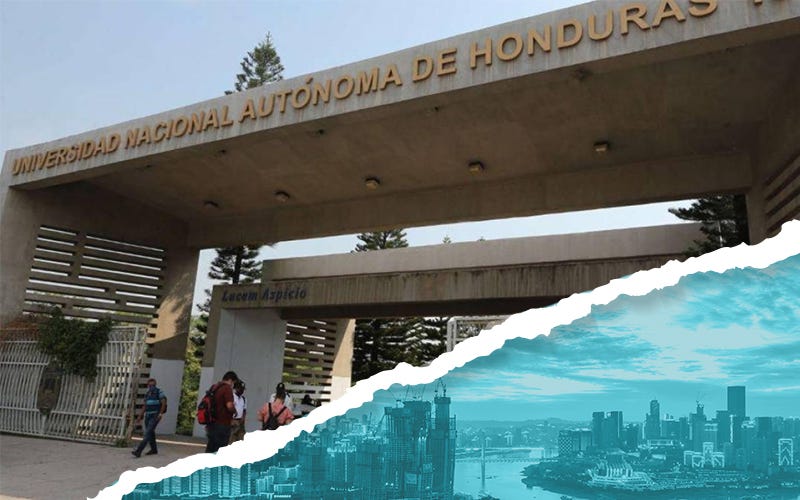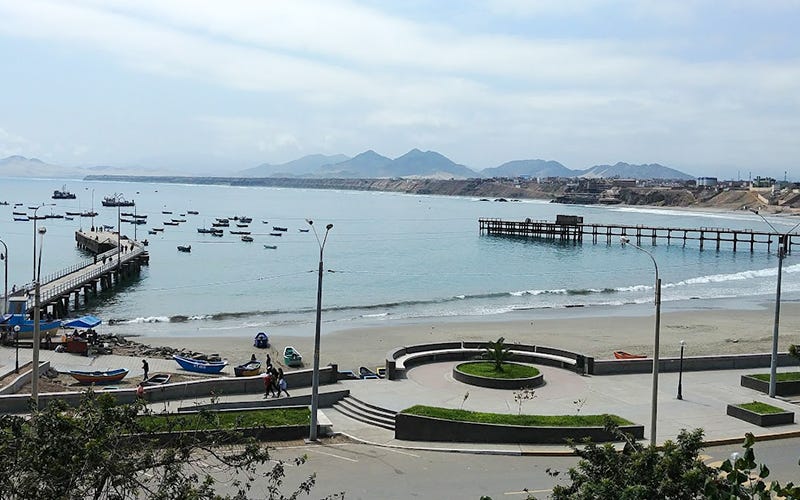Chaufa - A World Power
PRC's birthday parties in LAC, Petro and Fernandez off to Beijing, U.S. legislators on the PRC-LAC relationship, Chinese migrants cross the Mexico border
Hi! Welcome to Chaufa, a China-Western Hemisphere Newsletter by CPSI.
Today’s Edition covers September 25 to October 1.
Quote of the day
This Week’s Top 5 Stories:
PRC embassies from across the region celebrated the country’s 74th anniversary, with the only heads of government attending the events coming from the Caribbean: Prime Ministers of Antigua and Barbuda, Bahamas, and Grenada, the President of Suriname, and the Acting Prime Minister of the Barbados were all in attendance.
Colombia’s president Gustavo Petro will meet with Xi in China on October 25 to talk about the Bogota metro, though Xi reportedly is uninterested in discussing the project. The trip will follow a recent BRI-focused commercial dialogue.
President Fernandez of will also travel to Beijing October 17-18 to represent Argentina in the BRI forum.
A document supposedly leaked from the U.S. Embassy in Paraguay reportedly identifies corruption by former president Cartes as a threat to U.S. interests in the South American nation, including the maintenance of relations between Asuncion and Taipei. (SCMP)
The San Diego Tribune reports that in the past year, Chinese migrants and refugees attempting to cross the U.S.-Mexico border jumped from 2,000 to 20,000. Most migrants reportedly start their journey in Ecuador due to its visa-free status for PRC passport holders.
Chair of the U.S. House China Committee Mike Gallagher (R-WI) wrote a piece for Newsweek citing the examples of Peru and Paraguay arguing that “the CCP is ruthless in pursuit of dominance in Latin America,” forcing the United States’ hand “to show up in the region and bring solutions.”
The editorial comes as the U.S. House of Representatives Foreign Affairs Committee recently held a hearing on “Communism on Our Doorstep: The Threat of China’s Malign Influence in Latin America.”
My Take
PRC Parties Show the Diversity of the China-LAC Relationship
Over the past two weeks, at least 26 of the 28 Chinese embassies in the Western Hemisphere threw a big bash for the PRC’s 74th birthday.1 Though the parties reportedly featured a lot of similarities — hundreds of guests, fancy venues, and a speech by the Chinese ambassador — the differences in the guests lists provides insight into the diverse priorities across the region.
First, no two officials focused on the same issues. For the event in Suriname, President Santokhi honed in on his country’s ongoing debt restructuring negotiations. In Ecuador and Antigua and Barbuda, local officials attending the event stressed the importance of the One China Policy. Meanwhile in Mexico, trade and science cooperation took the spotlight. Although these speeches do not necessarily highlight every keep aspect in the relationship, they do provide a good window into what local and Chinese officials are prioritizing.
Similarly, the seniority of the speaker gives some insight into which countries give greater importance to positive ties.2 About 40% of the countries in the region sent a head or vice head of government, with Cuba, Ecuador, El Salvador, Guyana, and Venezuela joining the five Caribbean countries mentioned above.3 This comes as little surprise, with China serving as a major political supporter to the often authoritarian regimes in Cuba, El Salvador, and Venezuela, while Ecuador and Guyana (as well as many of the Caribbean countries) hold particularly strong trade and finance ties with the PRC. Meanwhile, Costa Rica and the Dominican Republic, two countries with much weaker political ties to China (and stronger ties to Washington) only opted to send Deputy Foreign Ministers to the receptions, indicating the lagging state of the bilateral relationship in recent years.
The Roundup
Politics and security
China’s permanent representative to the UN in Geneva argued for lifting sanctions on Venezuela. (CGTN)
The deputy governor of China’s Jilin province met with Argentina’s agriculture minister to discuss agriculture, mining, and energy, while the Argentine foreign minister sat down with the Beijing’s new ambassador to Buenos Aires.
China’s deputy foreign minister, Ma Zhaoxu, met with the Honduran foreign minister to discuss economic issues like trade, infrastructure, energy and tourism.
Cuba’s ambassador to Beijing hosted an event with China’s special representative for Latin America, Qiu Xiaoqi, to celebrate 63 years of relations. (CGTN)
Nanjing and the Nicaraguan city of Masaya established a sister city relationship in a virtual ceremony. (La Gente)
The president of Chile’s Senate gave an interview to Xinhua where he emphasized the importance of trade, especially agricultural trade, technology exchange, and the BRI as key pillars in the relationship.
Investment, finance, and infrastructure
China’s Sunstrong, an electronics manufacturer with its international group based out of Singapore, will invest $20 million in Coahuila, Mexico, while Mexican firm Southern Copper is looking to build a new $1 billion smelting plant due to nearshoring from China.
Costa Rica’s National Roads Council is encouraging the foreign ministry to negotiate a credit expansion with China’s Export-Import Bank for the Route 32 highway project due to delays and cost overruns. (CRHoy)
A Jamaican legislator reported that her constituents complained about house damage due to the Chinese-built Highway 2000, while in Peru a Chinese consortium led by CMEC is reportedly 14-months delayed in a water mega-project, resulting in a multi-million dollar fine.
The head of Mexico’s mining business group said that Mexico won’t be able to cancel Ganfeng lithium’s concessions, while a Chinese lawyer suggested that the government could resort to arbitrage. (Reuters) (CIAR)
Taiwan
Guatemala’s defense minister met with President Tsai to exchange medals and discuss the close relationship between the two countries, though the specific purpose of the minister’s visit was unclear. (Focus Taiwan)
The Belizean embassy donated books about the Caribbean country’s culture and wildlife to a local elementary school, while Taiwan’s ICDF joined Belize’s agriculture ministry for a goat and sheep management workshop.
The Taiwanese mission to St. Lucia recently hosted a technical mission with the Bank of St. Lucia for local women entrepreneurs. (Loop News)
Culture and society
The regional UN group for the Latin America and the Caribbean, ECLAC, hosted a screening of a CGTN documentary about the BRI. (CGTN)
Chinese activist Lu Yuyu, who had been jailed for documenting social unrest in the PRC, fled the PRC to relocate in Canada. (WSJ)
The Guyana-China Friendship Society is reportedly relaunching. The group was founded in the 1980s by three Guyanese and was patronized by multiple former prime ministers.
The National Autonomous University of Honduras (UNAH) and the PRC’s embassy signed an agreement on cooperation by focusing on development, including by inviting speakers suggested by the PRC’s embassy. (TNH)
Analysis and Opinion
Carinne Souza argues in the Gazeta do Povo that the recent Brazilian Worker’s Party (PT) meeting with CCP officials reflects poorly on the PT given the CCP’s human rights violations and authoritarian rule.
Francisco Vasquez describes the new Peruvian Port of Chancay in-detail in The Diplomat, noting that the “mega-project of unprecedented magnitude is a milestone in China’s growing influence in Latin America.”
Also in The Diplomat, Joseph Bouchard writes that Latin American leaders, like those Brazil and Argentina, intend to “include the yuan in financial and commercial dealings, to the benefit of China’s global financial influence.”
China’s ambassador to Chile, Niu Qingbao, wrote an editorial for La Tercera on the benefits of the BRI and its role in connecting Chile and China.
Leland Lazarus and Alexander Gocso wrote about Chinese criminal groups operating in Latin America for Dialogo-Americas.
That’s it for now! See you next week.
Make sure you don’t miss the next issue of Chaufa 👇
As of this writing, no receptions for Jamaica or Colombia could be found publicly posted online, although these may be hosted later in the week. We’ll keep you in the loop in Chaufa’s next edition.
I do want to caveat that of course this isn’t a perfect measure of which relationships are most important for China — schedules for major leaders get busy, and other unknown factors can come into play. But it does provide a valuable data point and loosely sketches on to what we already know about the closest relationships in the region.
Though Nicaragua didn’t send a high-level delegation, Daniel Ortega did send his son who is also a presidential advisor.

